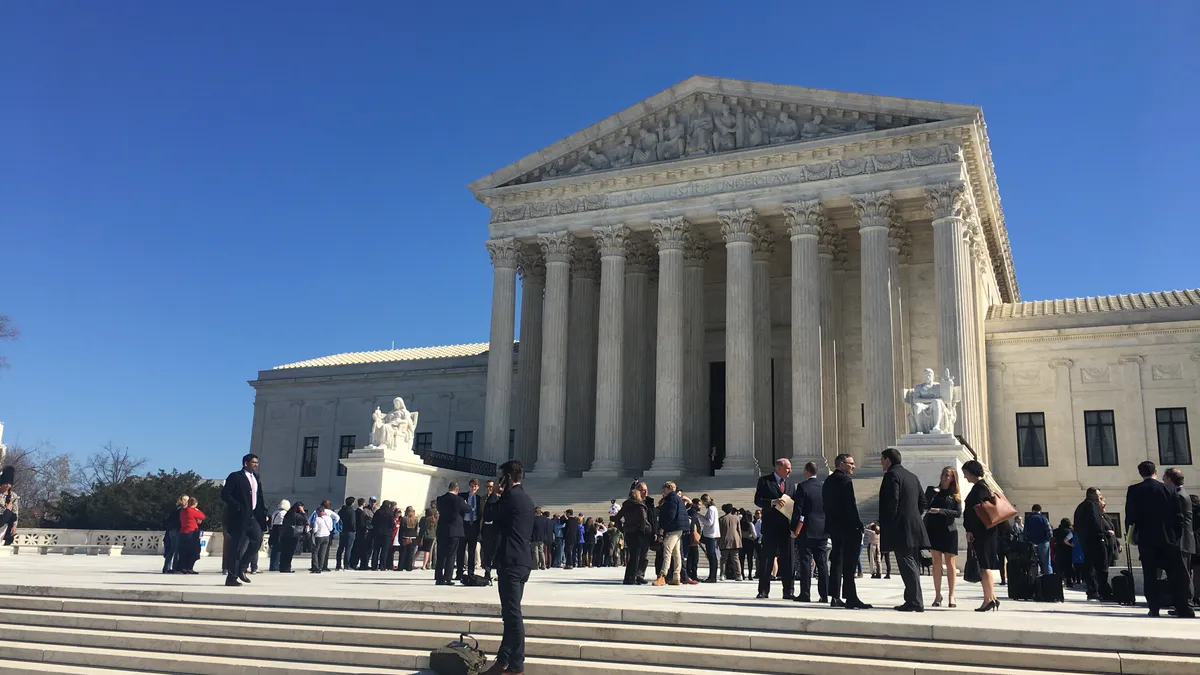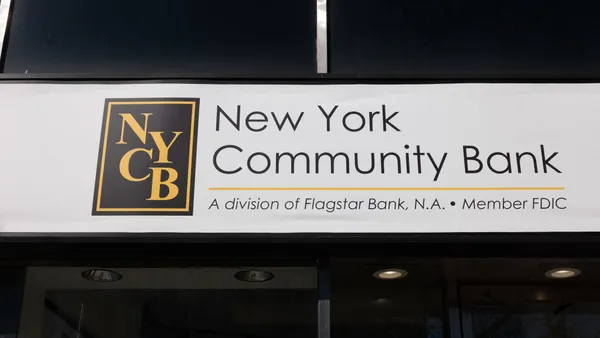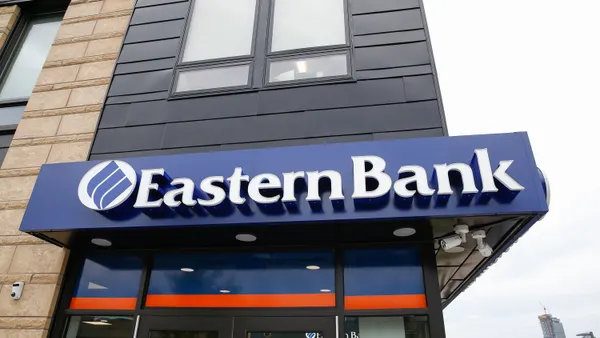Dive Brief:
- More than 200 U.S. corporations, including 13 banks, signed a "friend of the court" brief to support the rights of LGBTQ people in three cases currently before the U.S. Supreme Court. The court may decide whether Title VII under the 1964 Civil Rights Act protects LGBTQ people against sex discrimination in employment, housing, education and healthcare.
- Advocacy groups Human Rights Campaign (HRC), Lambda Legal, Out & Equal, Out Leadership, and Freedom for All Americans announced the corporate action July 2 in what Lambda Legal described as a "landmark brief" with more corporate signers than any other previous brief involving support of the LGBTQ community. Top U.S. banks to sign the brief include JPMorgan Chase, Bank of America, Citigroup and Wells Fargo.
- "This brief exposes the lie that affirming Civil Rights protections for LGBTQ Americans is somehow anti-business," Erin Uritus, CEO of Out & Equal Workplace Advocates, said in a media statement. "The opposite is true. Equality is good for businesses and employees. And consumers — who are increasingly savvy and intentional about their spending power — are demanding equality."
Dive Insight:
The Supreme Court is set to rule on three cases, Bostock v. Clayton County, Georgia; Altitude Express, Inc., et al. v. Zarda, Melissa, et al. and R.G. & G.R. Harris Funeral Homes v. EEOC, et al., regarding whether Title VII includes protections based on sexual orientation or gender expression. Further complicating matters, the U.S. Equal Employment Opportunity Commission (EEOC) and the U.S. Department of Justice (DOJ) have emerged on opposite sides of the issue; DOJ said that "the ordinary meaning of 'sex' does not refer to gender identity," while the EEOC has said otherwise.
The High Court's decision is not one that will be "easily predicted," either, Haynes and Boone Partner Jason Habinsky previously told HR Dive: "I think there are enough legal nuances where it's not so clear cut — there are various interpretations to the issues at hand."
But experts, including Habinsky, have continually said that employers don't have to wait on the High Court's rulings to extend their own anti-discrimination policies to include LGBTQ employees. Some states and municipalities already have anti-discrimination policies in place for LGBTQ individuals, and at the federal level, the Equality Act — which would legislate LGBTQ anti-discrimination protections nationwide — has garnered some traction, passing the U.S. House of Representatives. It currently waits in committee at the U.S. Senate.
Other banks on the list include: Amalgamated Bank; BNP Paribas USA; BNY Mellon; Deutsche Bank; Eastern Bank; Goldman Sachs; HSBC Bank USA; Morgan Stanley and the Royal Bank of Canada.












